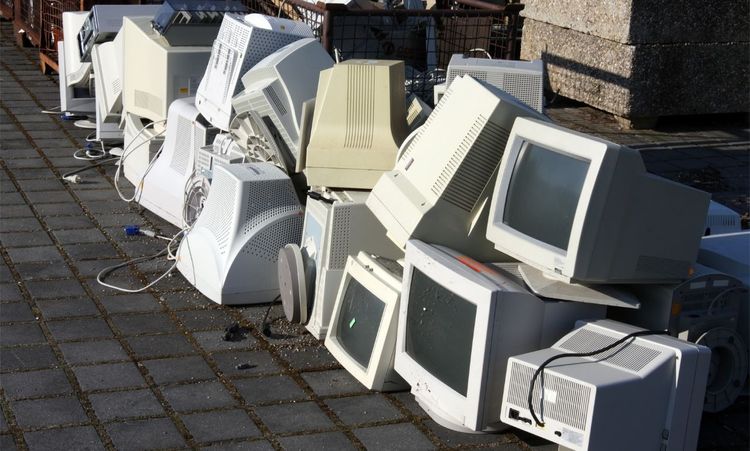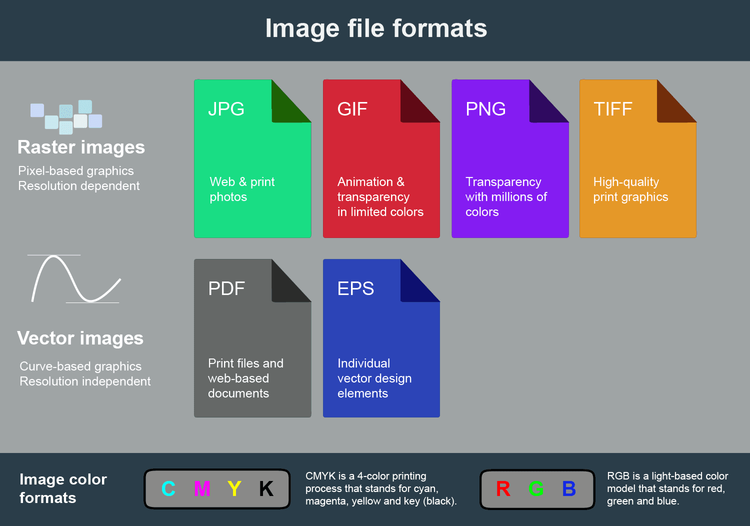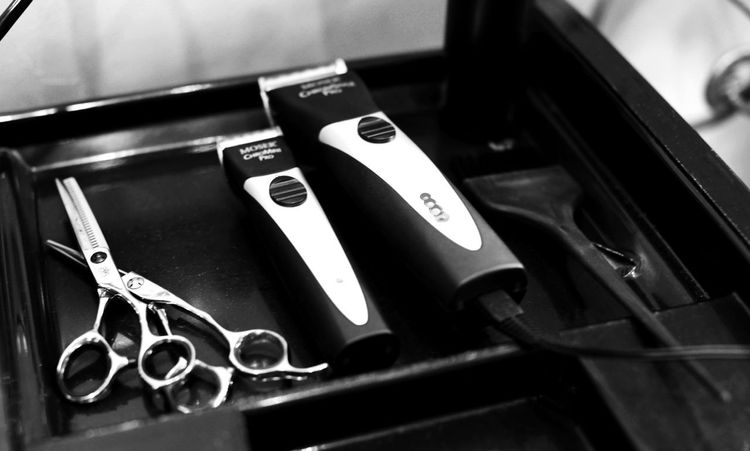Got a stash of used electronics and old monitors piling up? You're not alone. With the constant churn of upgrades and new models, it's easy to accumulate a growing collection of outdated tech. But before you resign yourself to being the neighborhood's designated e-waste hoarder, here's a thought: why not turn that digital detritus into dollars? That's right, recycling computer monitors for money is a thing.
In this guide, we'll explore the top ways to recycle your old electronics and protect your wallet responsibly.
Why Recycle Electronics & Monitors?
It's tempting to throw that ancient monitor in the trash and call it a day. But here's the thing: electronic waste (e-waste) is a massive and growing problem. Millions of tons of discarded phones, computers, TVs, and other devices end up in landfills each year.
And it's not just an eyesore. E-waste contains toxic materials like lead, mercury, and cadmium that can leach into soil and water, harming the environment and human health. Plus, many electronics contain valuable metals like gold, silver, and copper that could be recovered and reused instead of mined from the earth at a significant cost.
By recycling your old electronics, you're helping to:
- Reduce electronic waste in landfills.
- Conserve natural resources
- Prevent toxic chemicals from polluting the environment.
- Support the circular economy by providing raw materials for new products.
How to Prepare Electronics for Recycling
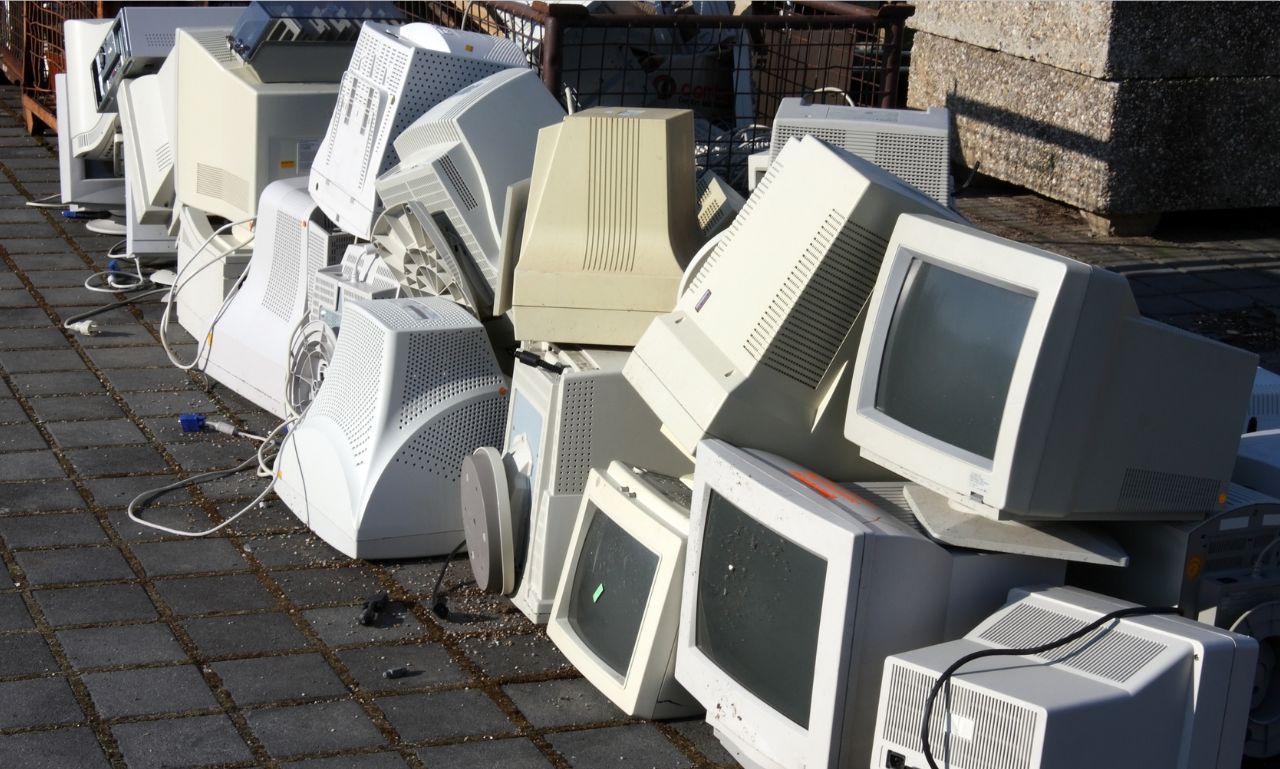
Before you start hunting for places to offload your old tech, there are a few steps you'll want to take to get your devices ready:
- Back up your data. Ensure you've copied critical files, photos, etc., from your old devices to a new computer or cloud storage. You don't want to lose precious memories or documents.
- Wipe your data. To protect your privacy, use the factory reset option or data erasure software to clean your devices of personal info before recycling them. Remove SIM and SD cards from phones.
- Disassemble if needed. Items like computers may need to be removed to separate the monitor, CPU, keyboard, etc. Check with your recycler to see what they prefer.
- Keep hazardous components separate. Some electronics, like CRT monitors, contain toxic substances and need special handling. Have these items ready to hand over separately.
Now that your digital discards are ready, consider the top options for recycling computer monitors for money and another tech.
1. Electronics Trade-In Programs
One of the easiest ways to get value from your old electronics is to trade them in for cash or gift cards through a retailer or manufacturer's program. Many big names in tech offer trade-in options, such as:
- Amazon Trade-In: Earn Amazon gift cards for eligible items like Kindles, tablets, streaming devices, Bluetooth speakers, and headphones.
- Apple Trade-In: Get an Apple Store gift card for your old iPhone, iPad, Mac, or Apple Watch. Devices with no trade-in value can be recycled for free.
- Best Buy Trade-In: Turn old tech into Best Buy gift cards. They accept various items, from phones and tablets to cameras, video games, and more.
- Dell Trade-In: Offset the cost of a new Dell computer by trading in your old desktop, laptop, monitor, phone, or tablet for a Dell eGift card or account credit.
How much you earn will depend on the type of device, its age, and condition. Newer, high-end gadgets in good shape will generally fetch the most money. Items that are very old or not working may have little to no trade-in value but can still be recycled responsibly through these programs at no cost to you.
The process is usually pretty simple:
- Go to the retailer's trade-in page and select your device
- Get an estimate for your item based on its specs and condition
- Ship your item for free or drop it off at a store location
- Receive a gift card or account credit once your item is received and verified
Trading in can be a good option if you're looking to upgrade your tech anyway and would use a gift card with that retailer. You may not get as much as you would selling the item yourself, but it's relatively low-effort.
2. Online Electronics Buyback Sites
Another way to recycle computer monitors for money and offload old devices is through online buyback marketplaces. These sites specialize in giving cash for used electronics, and some will even pay for broken or outdated items. A few popular options:
- ItsWorthMore: Get paid by PayPal Zelle, or check for your smartphones, tablets, computers, smartwatches, and gaming consoles. They offer free shipping and promise to beat competitors' prices.
- Decluttr: This site buys your old cell phones, tablets, computers, gaming hardware, and more. Tell them what you have, ship for free, and get paid by direct deposit, PayPal, or check.
- BuyBackWorld: Earn cash for smartphones, tablets, computers, gaming consoles, and other devices in any condition. They pay by check or PayPal and offer a high-price guarantee.
- GadgetGone: Sell your used phones, tablets, MacBooks, iMacs, and more for cash. Get a prepaid shipping kit, pack up your devices, and get paid by check or PayPal.
- SellCell: This site compares buyback offers from multiple companies to get you the best deal on your old phones, tablets, smartwatches, and more.
The buyback process works similarly to trade-in programs:
- Search for your device on the site and answer a few questions about its specs and condition
- Get an offer and decide if you want to sell
- Ship your item to them (most cover shipping costs)
- Once they verify the item, you'll get paid by the method you chose
Online buyback can be a good way to get quick cash for electronics without the hassle of selling the item yourself. Just be sure to compare offers, as prices vary from site to site.
3. Local Electronics Recyclers
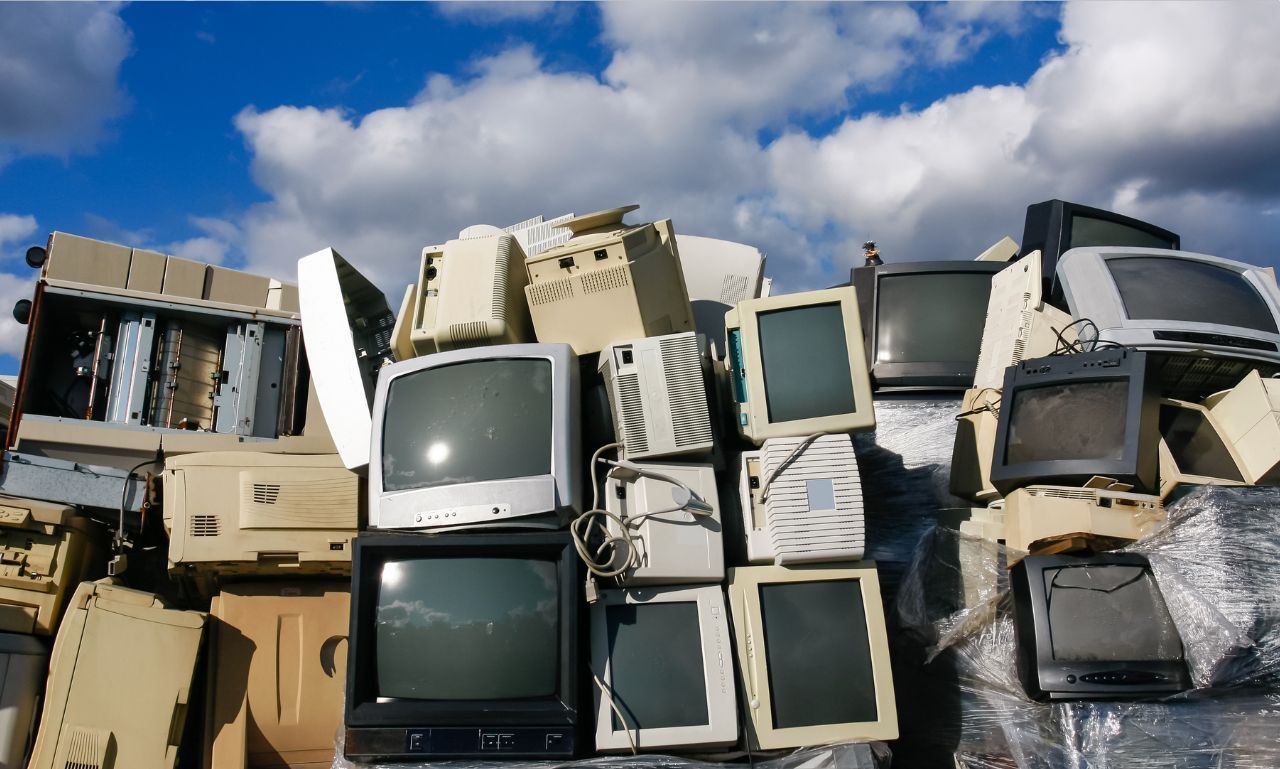
Recycling is still an eco-friendly option for items that may not have resale value, such as old CRT monitors, outdated computers, broken devices, etc. Some local recyclers will even pay you for your e-waste.
To find a reputable e-cycler near you:
- Check with your local government's waste management department to see if they offer e-waste collection events or have a recycling center that accepts electronics.
- Look up e-cyclers in your area and check their websites to see what items they accept, if they pay for certain materials, and if there are any dropoff instructions.
- Use Earth911's Recycling Search to find e-waste recycling locations near you. Just enter your ZIP code and the type of device you want to recycle.
- See if a participating retailer like Staples or Best Buy is hosting an electronics recycling event in your area.
Here are a few things to keep in mind when recycling electronics locally:
- Ask the recycler if they have any certifications, such as e-Stewards or R2, that verify they adhere to strict environmental and social standards for processing e-waste.
- Be wary of any recycler who offers to pay high amounts for e-waste or tries to charge you a hefty recycling fee. Stick to well-established, reputable companies.
- Please wipe your devices of personal data before dropoff. While certified recyclers should handle your devices securely, it's always best to protect your privacy.
Recycling electronics locally is a good option for items that are nearing the end of their useful life and cannot be resold or donated. Some recyclers may pay for specific computer components or precious metals. Just do your research to find a responsible recycler.
4. Sell Electronics Yourself
Of course, if your old tech still has some life left, you can try to sell it yourself and potentially get more money than trade-in or buyback offers. Some options for selling electronics:
- Online marketplaces like eBay, Amazon, Craigslist, or Facebook Marketplace allow you to list your item and ship it directly to the buyer.
- Local sales apps like OfferUp, LetGo, or Nextdoor are suitable for connecting with nearby buyers for in-person sales.
- Specialty electronics marketplaces like Swappa (for phones and tablets) or Gazelle (for Apple devices) cater to tech-savvy buyers looking for used gadgets.
To get the most money from your sale:
- Research prices for your specific device, accounting for its specs, condition, and market demand. Check completed eBay listings to see what similar items are sold for.
- Take high-quality photos showing the item's condition. Be upfront about any scratches, dents, or defects.
- Write detailed descriptions noting the item's features, storage capacity, cosmetic and functional condition, and any included accessories.
- Price competitively based on your research to attract buyers, but don't undersell yourself if the item is in great shape.
- Be responsive to buyer questions, and ship promptly and securely once the item sells.
Selling electronics yourself takes more time and effort than trade-in or buyback, but you may have more cash in your pocket, especially for high-value items in good condition. Just be cautious when selling locally and always meet in well-lit public places for transactions.
5. Donate Electronics for Tax Deductions
Donating your old electronics is a fantastic option if you're less concerned about making money and more interested in helping others. Not only does it keep them out of landfills, but it also provides access to technology for those who may not be able to afford it otherwise.
Some great places to donate:
- Local schools, libraries, or community centers may be able to use your old computers, tablets, or other devices for educational programs or to provide patrons with access.
- Charities like Goodwill and The Salvation Army accept old electronics and may offer computer repair job training programs or sell them to fund their charitable work.
- Reuse programs like Dell Reconnect (in partnership with Goodwill) and World Computer Exchange refurbish donated computers to give them to those in need, both locally and globally.
Before donating, make sure to:
- Clear your devices of personal data and remove any batteries.
- Check the organization's website for electronic donation guidelines and item restrictions.
- Get a receipt for your donation. You can deduct the fair market value of your donated electronics from your taxes.
Donating electronics won't put cash directly in your pocket, but it supports great causes. And if you can claim a tax deduction, that's more money back in your budget at the end of the year. Plus, it's just a good feeling to know your old tech is put to use instead of gathering dust or adding to e-waste.
Comparing Electronics Recycling Options
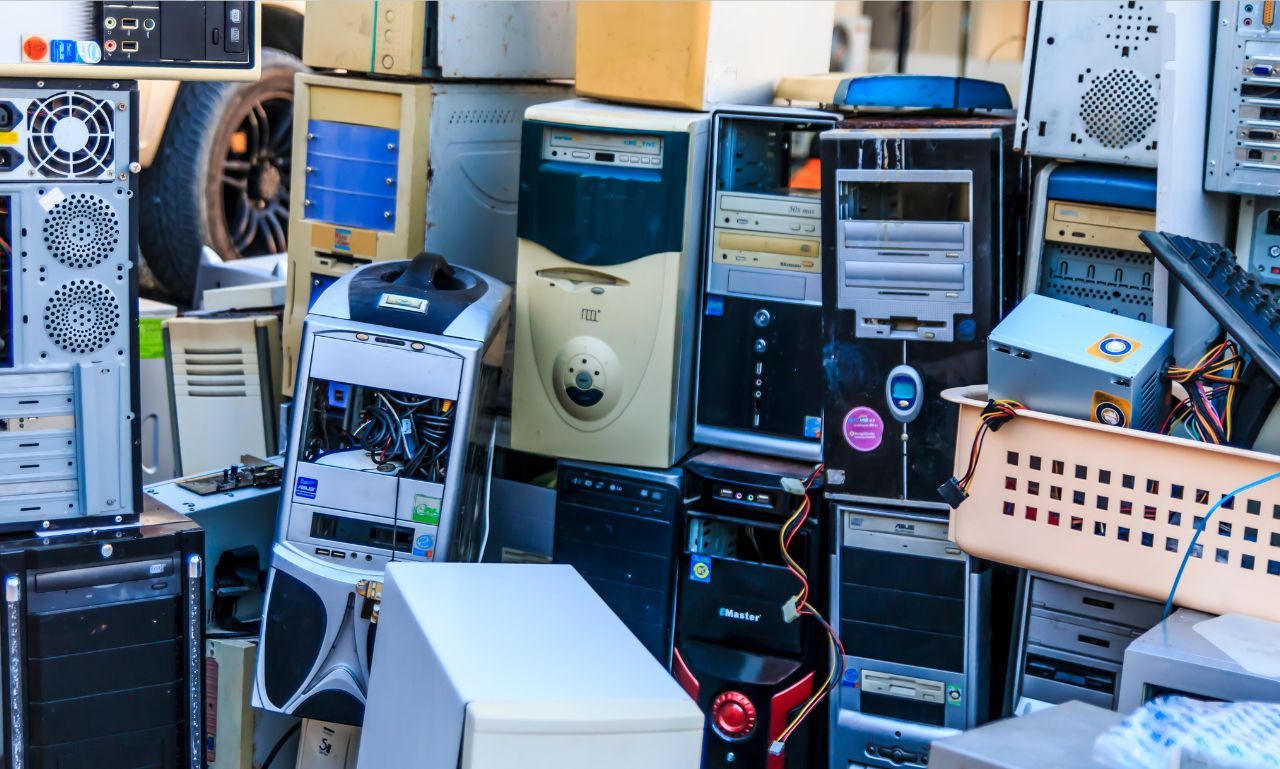
Pros & Cons
Trade-in programs are convenient. They give a retailer a gift card or credit, offer free shipping, and offer lower payouts than selling yourself. However, they are limited to certain retailers.
Online Buyback: Quick cash for many types of devices, free shipping Payouts may be lower than selling yourself.
Local Recyclers Eco-friendly disposal may pay for some items. However, due to the limited local options, it may not pay much or at all.
Selling Yourself Potentially higher profits, more control over pricing, More time and effort to list, ship, and communicate with buyers
Donating supports good causes, keeps electronics out of the waste stream, and may get tax deductions. There are no direct profits, and deductions must be itemized to benefit from taxes.
Conclusion
So, there you have it—the complete guide to recycling computer monitors for money and cashing in on your other old electronics in 2024. Whether you opt for trade-in credit, sell for top dollar, or donate to a good cause, you now have the information you need to retire your outdated devices responsibly and profitably.
The key is to take advantage of those buyback offers and recycling opportunities sooner rather than later. The longer you wait, the less value your electronics are likely to have. And e-waste isn't getting any smaller—the sooner we can collectively divert devices from landfills, the better.
So, gather your digital relics and convert them to cash (or at least karma points) today! Your wallet and the planet will thank you.
